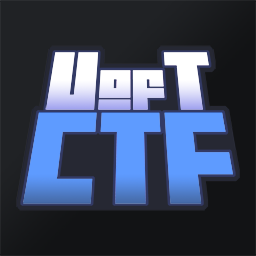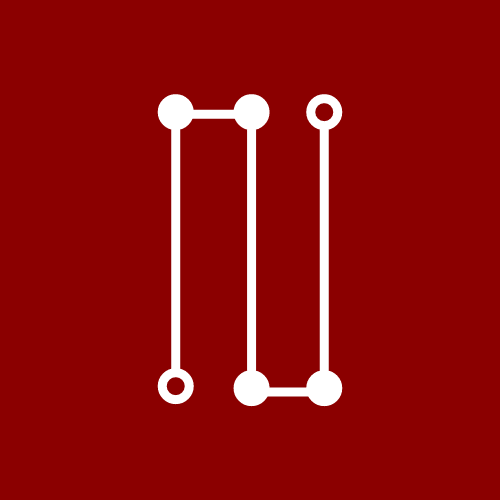Student Groups & Getting Involved
5 Benefits to Getting Involved with CS Student Groups
The Computer Science community at U of T is filled to the brim with student groups that are here to serve any CS interest you could have! Students within a CS course or program are automatically members of the Computer Science Student Union (CSSU), but there’s plenty more that you can get involved with. We have groups who:
Aim to support specific demographics (ex. Women in Computer Science (WiCS))
Focused on specific areas of CS like AI (ex. UofT AI, IlluminAI) or data science (ex. Students in Data Science and Statistics (SDSS))
Provide projects (ex. Blueprint, UTMIST) and events like hackathons (ex. UofT Hacks)
No matter the focus of the club or organization, joining a student group is a great way to build your CS network and skills. In particular, here are 5 ways a CS student group can support your CS studies and professional development:
1. Research shows that involvement in student groups improves academic success
You might be worried that taking time to join a student group will distract you from your studies, but lots of research has demonstrated that students who are involved with student groups do better in their courses. There are many reasons for this – meeting study partners, increasing your motivation and sense of purpose, or improving your time management. But whatever the reason, the outcome is the same: getting involved can support your academic success.
2. Work on projects for your portfolio, with no academic integrity or intellectual property concerns
As you start to look for jobs or internships, many students find it helpful to create a website or GitHub page with examples of apps or projects you have created or worked on. Including coursework in your portfolio can sometimes be really helpful, but isn’t always possible – and requires permission from your course instructor – because of academic integrity and intellectual property considerations.
Joining a student group can give you an opportunity to work on projects that you can share without these concerns (though you’ll still want to clarify your role in projects developed by a group, and seek permission from group members to share the work), and also allow you to develop projects that reflect the core interests and skills you want employers to recognize. For example, students who participate in Blueprint create apps and software solutions for non-profit organizations; students in this group can highlight their contributions to these resources – some of which are already shared with the public – on a resume or in a portfolio.
3. Validate communication, leadership and other skills by listing club roles and accomplishments on your resume
Not only will you develop personal skills – communication, problem-solving, leadership, and so on – through participation in a student group, but when you are elected to a formal role within a group, or implement concrete achievements (e.g. launching a social media communications campaign), these can provide great items to add to your resume. Being able to specify your role within the organization and provide examples of your accomplishments provides evidence to claims you make about your soft skills and experiences.
4. Demonstrate your ability to succeed in different contexts (courses, clubs, work, etc.)
While employers care about your academic strengths, they know that the workplace is a different environment from the classroom. Being able to point to experience and successes in different contexts, including student groups, demonstrates the transferability of your skills. It also shows employers that you have strong time management skills and can manage multiple projects or priorities at once.
5. Student clubs and organizations build your professional network
Maybe a club leader had a placement at the internship you’re applying to and can give you insight into what you should include on your resume, or another club member works with a potential research supervisor and is able to introduce you. Club members will become your professional network, offering you advice and connecting you with potential employers or others who can help you achieve your goals. If they're a couple of years ahead of you and enter the workforce while you’re still a student, they might even be the ones to hire you for a job or internship. Many student groups also maintain strong alumni networks with former members who have graduated and moved on, so you can reap those network benefits sooner rather than later.
Department of Computer Science Affiliated Student Groups
The Department works closely with a number of affiliated student groups who have a significant impact within the U of T CS community. Opportunities offered through these groups include academic supports (ex. study sessions, coding workshops), mentorship programs (ex. upper year, alumni), events (ex. hackathons, faculty mixers), and professional opportunities (ex. career fairs, networking events, industry talks). Check out this year’s affiliated student groups and fit the right fit for you!
Affiliated groups have access to supports like space bookings, funding, professional development, and connections to faculty & additional resources — our tiered support system allows groups to opt into their desired level of benefits. If your group would like to apply for DCS Student Group Affiliation, visit the Clubs Corner on the CS Undergraduate Quercus or email cs.undergrad@utoronto.ca.
Grace Hopper Tier
Computer Science Student Union (CSSU)
The Computer Science Student Union, or CSSU for short, represents over 1200 Computer Science students who are either taking a Computer Science course or are part of a Computer Science POSt at the University of Toronto St. George campus.
Women in Computer Science (WiCS)
Women in Computer Science (WiCS) is a community at the University of Toronto striving to support and empower self-identifying women pursuing technical careers.
blueprint
Blueprint strives to make technology accessible and useful for those who create communities and promote public welfare. They are a team of students that develops software pro bono for nonprofits and promotes technology for social good. Through Blueprint, members will build professional and social skills while contributing to their community by working on technical projects that span several months.
UTMIST
UTMIST aims to empower students of all skill levels and experiences to foster their passion and accelerate their career in Artificial Intelligence and Machine Learning. Through workshops, conferences, hackathons, and numerous other initiatives, UTMIST hopes to provide the best opportunities for U of T students in this field.
University of Toronto Capture the Flag Team (UofTCTF)
UofTCTF aims to bring together individuals who are passionate about or simply curious about cybersecurity and work together as a group to broaden our knowledge about the subject. Students can participate in Capture the Flag competitions held throughout the year to apply the knowledge gained throughout the academic year. UofTCTF welcomes people with any level of experience.
University of Toronto Robotics Association (UTRA)
Established in 2004, the University of Toronto Robotics Association (UTRA) is the premier robotics student association UofT. Composed of five core design teams, UTRA provides endless opportunities for those seeking robotics experience. We represent the University of Toronto in prestigious national and international robotics competitions.
University of Toronto Artificial Intelligence (UofT AI)
UofT AI is a group of passionate undergraduates interested in artificial intelligence. Through a variety of initiatives, including educational programs, competitions, guest lectures, and conferences, they help U of T students get involved in the growing field of Artificial Intelligence.
IlluminAI
IlluminAI is dedicated to making discussions on artificial intelligence (AI) ethics and societal impacts accessible. We host workshops, publish articles, and produce high-quality educational videos and interviews, blending novel AI concepts with creative collaborations in arts, media, and public engagement. Our mission is to build a student-led, interdisciplinary, and highly creative community to showcase UofT’s AI research and creativity.
UofTHacks
Canada’s first student-run hackathon, UofTHacks, brings together 1000+ innovators, technology enthusiasts, designers, and entrepreneurs in a thrilling competition where they will embark on a journey to build unique and impactful projects.
Ada Lovelace Tier
University of Toronto Esports (UTES)
U of T Esports (UTES) is the largest online community at U of T, and is the hub for all Esports and gaming communities & activities at the University of Toronto. We aim to unite students by a common love of esports and gaming through community events & discussions on and offline!
University of Toronto Smash (UTSmash)
UTSmash was formed to act as a central gathering point for Super Smash Bros. Ultimate (Smash Ultimate) players and enthusiasts at the University of Toronto. UTSmash aims to foster, promote, and expand our Smash Ultimate community. UTSmash holds weekly in-person events to provide players with a space to interact and compete in our diverse community. Stop by if you love Smash and want to have a great time!
Students in Data Science and Statistics (SDSS)
The Students in Data Science and Statistics (SDSS) is a student-led organization at the University of Toronto dedicated to the professional, academic, social, and personal development of undergraduate students in data science and statistics — as well as those from other disciplines interested in these fields.
Institute of Electrical and Electronics Engineers - University of Toronto Student Branch (IEEE)
For more than 50 years, IEEE UofT has helped students grow both personally and professionally by offering opportunities to deepen their industry knowledge, strengthen their technical abilities, discover potential career paths, and build meaningful connections. This support comes through major annual events like Technical Interview Night, NewHacks (a beginner-friendly hackathon), and MakeUofT (Canada’s largest hardware-focused hackathon), as well as ongoing workshops on web development, programming, hardware, and more.
These are just a few of the many clubs you could join!
Many additional clubs relevant to CS students are listed on CSSU's Community page.
You can also visit the Student Organization Portal for a complete list of all campus groups.
Frequently Asked Question
Q. Can I join a club at any time?
A: Each club may have a different process to join. We recommend you view the club's website or social channels, as they will often post details on how and when you can join.
You can also find contact details for each specific club on the Student Organization Portal and ask each club for their process on how to join.













